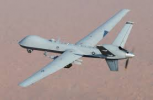robertsconley
Legendary Pubber
- Joined
- May 3, 2018
- Messages
- 5,719
- Reaction score
- 14,888
Oh you are in for a treat then. This isn't just any site. It isThanks for this. It looks like one of those SciFi deep dive sites like the Anchorpoint essays for Alien I enjoyed when I was younger.
ATOMIC ROCKETS!
Winchell Chung is a legend for making this place.
Everything you want to know about spaceflight and space for fiction or RPGs is here.







